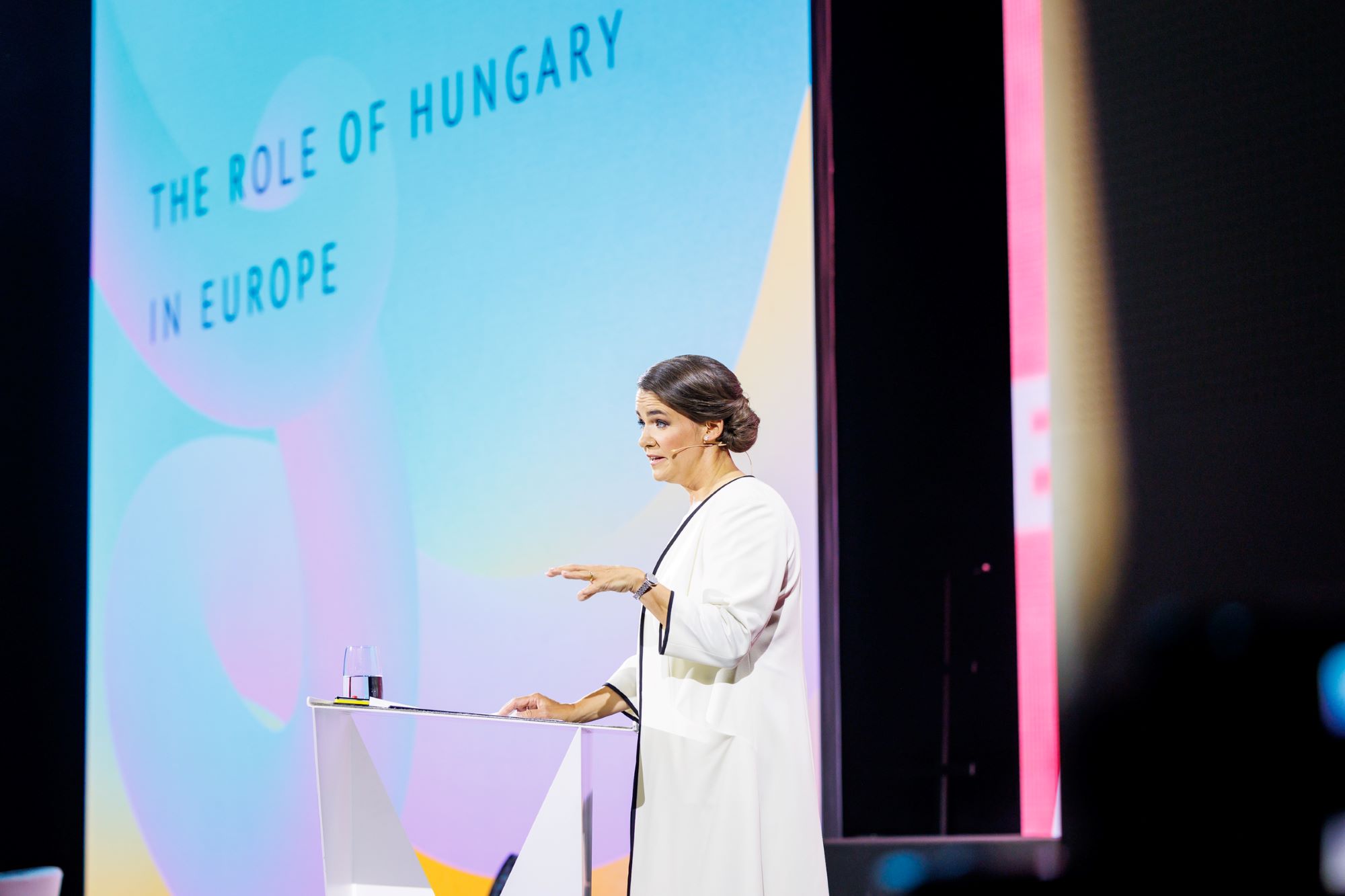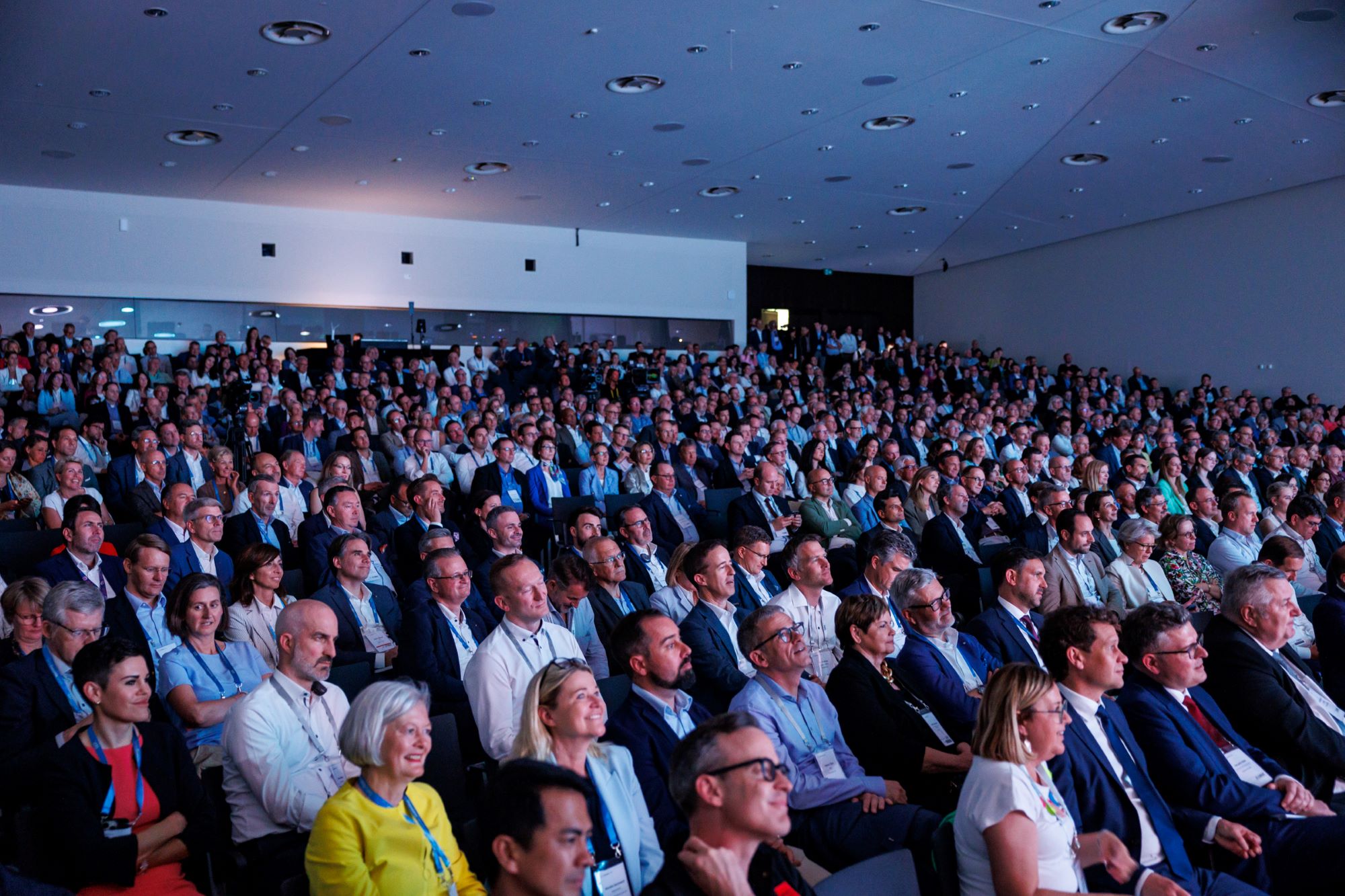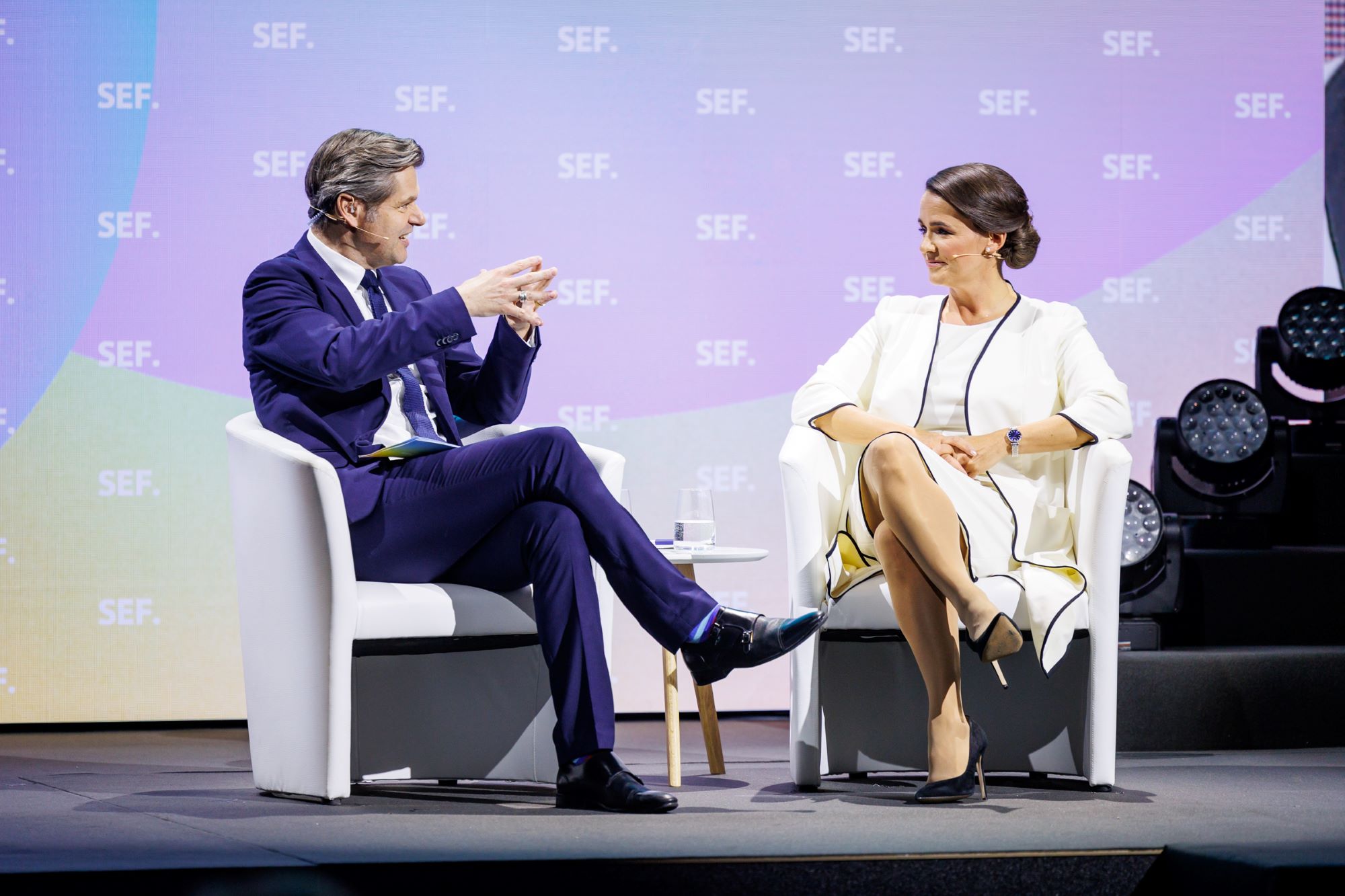If we do not give a pro-family response to the demographic challenge, Europe's future could be at risk
The demographic crisis is a key challenge of our time, and if we do not respond to it with a pro-family approach, the future of Europe could be at risk, said President of Hungary Katalin Novák in her speech on Hungary's role in Europe at the Swiss Economic Forum (SEF) in Interlaken on Thursday.
In the speech, which was repeatedly interrupted by applause from the audience, Katalin Novák pointed out that Hungary has been facing a serious demographic challenge since 1981, which all of Europe is also facing. She added that one response to this challenge, which many countries are giving, may be immigration, while another is to support families, to increase the birth rate, i.e. to pursue the family-friendly policy that Hungary has chosen.
The President of Hungary stressed that Hungary pursues a family-oriented, family-friendly policy, spending 6% of its GDP on family support, which is the highest in the world.
Katalin Novák said that the average childbearing age of women in Hungary was 25 years in 2000, but by 2022 it became 28.8 years, while this number is even higher in the European Union or Switzerland.
According to the Head of State, an important point is to ensure that those who decide to have children have a financial advantage. Listing measures in Hungary, she pointed out the free nursery care, and that student loans or mortgages for those who have children can be reduced. The statement that in Hungary, women with at least four children will never have to pay personal income tax, elicited a loud applause from her audience.
Katalin Novák also spoke about economic issues. She said that the unemployment rate was above five percent in 2010, but is now below four percent. While the number of employed individuals was 3.75 million in 2010, it is now 4.7 million.
The President recalled that for 25 years, the Swiss Economic Forum has provided an opportunity for an exchange of views on the main challenges facing us. She stressed that Hungary is very poor in natural resources, which is why Hungary pursues strong, positive relations with its neighbours, where Hungarian minorities also live.
She also recalled that Hungary has been a member of the European Union for more than twenty years, and that the Central and Eastern European regions have also grown stronger over these decades. She said: we have gained plenty of experience and learned a lot about freedom, which we have regained, how democracies function, and about independence.
In response to a question from the moderator, she said that Hungary recognises Ukraine's territorial integrity and sovereignty, but has to make compromises due to our country's energy dependence.
She stressed that Hungary is part of Europe, part of the European Union, and that no change is expected in this respect, and that she sees it as her duty to speak about Hungarians and their customs everywhere around the world.






